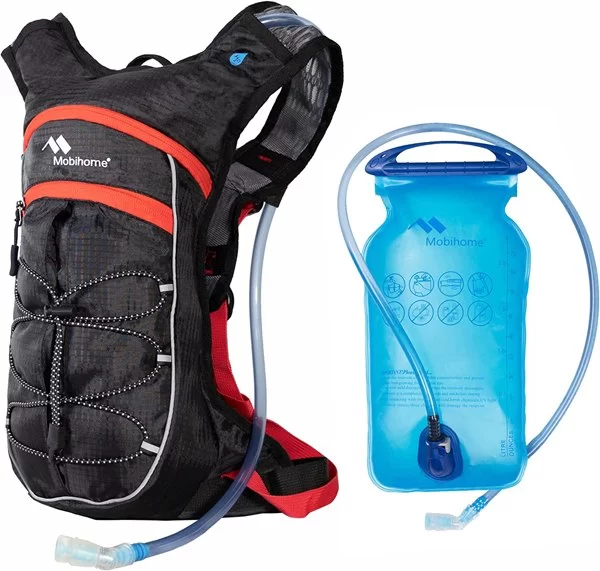Learn how to choose the right backpacking backpack with hydration compartment. Discover key features, real backpacker stories, and find expert-recommended gear at Pine Cliff Resort.

- why-a-hydration-compartment-matters - Why a Hydration Compartment Makes a Difference in Backpacking
- key-features-to-look-for-in-a-backpacking-backpack - Key Features to Look for When Choosing a Backpacking Backpack
- how-to-match-a-backpack-to-your-hiking-style - How to Match the Right Backpack to Your Hiking Style
- real-backpacker-insights-on-hydration-packs - Real Backpacker Stories: The Impact of Built-In Hydration Compartments
- shop-expert-recommended-gear-at-pine-cliff-resort - Shop Expert-Recommended Gear at Pine Cliff Resort
1. Why a Hydration Compartment Makes a Difference in Backpacking
When you're deep in the backcountry, hydration is not just a convenience—it’s essential to survival, comfort, and performance. That's why choosing the right backpacking backpack with hydration compartment has become a top priority for outdoor adventurers, especially those tackling multi-day or high-elevation trails.
Traditional water bottles require constant stopping, fumbling through zippers, and often mean you drink less than you should. In contrast, backpacks with hydration compartments make it easy to sip while moving, keeping your body fueled and your pack balanced. It’s a small design feature that dramatically improves your trail rhythm and long-term stamina.
2. Key Features to Look for When Choosing a Backpacking Backpack
Not all hydration-ready backpacks are created equal. To find one that works for your needs, focus on the following categories that can influence both hydration access and overall trail comfort:
2.1 Hydration Compatibility and Capacity
Check if the backpack includes a built-in hydration sleeve, hose ports, and hose clips. Most hydration sleeves accommodate 1.5 to 3-liter reservoirs, and choosing the right capacity depends on how long you're hiking and your access to refilling points.
Pro tip: Make sure the sleeve is well-insulated if you're hiking in hot or freezing conditions—temperature control matters more than you think.
2.2 Load Distribution and Fit
The best hydration compartment means little if the rest of your backpack doesn’t support your load well. Look for padded hip belts, adjustable torso lengths, and breathable back panels. Hydration weight should sit close to your center of gravity to avoid shoulder fatigue.
2.3 Easy Refill Access
Many modern backpack designs allow access to the hydration reservoir without unpacking everything. Side zippers or external loading sleeves are major advantages for trail efficiency. The last thing you want is to dismantle your gear just to top off water on a steep ascent.
2.4 Weather Resistance and Ventilation
Hydration compartments shouldn’t compromise the integrity of the pack. Ensure the pack material is water-resistant or comes with a rain cover. Ventilation features—like suspended mesh backs—help reduce sweat build-up during long climbs or humid hikes.
3. How to Match the Right Backpack to Your Hiking Style
Are you a fast-paced day hiker? A weekend backpacker? Or someone who disappears into the wilderness for a week? Your hiking style will influence the best backpack setup for you:
3.1 For Day Hikers
A lightweight 20-30 liter pack with a 1.5–2L hydration sleeve is often enough. Speed and comfort are the priorities here, along with quick-access compartments for snacks, headlamps, or first-aid kits.
3.2 For Multi-Day Trekkers
Opt for a 40–65 liter capacity with room for sleeping gear and meals. Look for a hydration system that integrates with your pack’s frame and allows refills without removing the bladder. Bonus if it has stash pockets for filtration or purification tablets.
3.3 For Long-Distance Thru-Hikers
Durability becomes critical. Choose packs built for thousands of miles, with a hydration sleeve that can support a larger bladder or even dual reservoirs. Strategic external storage and compatibility with external hydration add-ons can reduce downtime.
4. Real Backpacker Stories: The Impact of Built-In Hydration Compartments
When Colorado-based hiker James Liu completed the Four Pass Loop in Aspen, he credited his hydration-compatible pack for keeping him steady. “At elevation, even a 10-minute delay in drinking can give you a headache or fatigue. Having the bite valve right on my shoulder strap changed everything.”
Meanwhile, a backpacker named Kayla documented her week-long trek in Zion where her hydration reservoir hose froze overnight. “That’s when I realized my pack’s insulated hose sleeve was more than a luxury—it was survival.”
These stories are common among seasoned hikers. The convenience of an integrated hydration system reduces pack-off time, prevents dehydration, and makes water management second nature on the trail.
5. Shop Expert-Recommended Gear at Pine Cliff Resort
Finding the right backpacking backpack with hydration compartment doesn’t have to be a guessing game. At Pine Cliff Resort, we carry handpicked gear tested by experienced hikers and gear experts. Whether you're headed into the Rockies or just exploring your local trail system, we can help you gear up with confidence.
5.1 Quality Brands with Trail-Proven Designs
We stock packs from trusted names like Osprey, Gregory, Deuter, and Granite Gear—all with hydration compatibility and tailored fits. Each product page includes in-depth specs, sizing charts, and use-case suggestions based on trail type and trip length.
5.2 Personalized Help for Every Adventure
Not sure what size you need or how big your bladder should be? Our outdoor team is here to guide you through everything—from choosing the right torso fit to making sure your hydration system works smoothly with your other gear.
Choosing the right backpacking backpack with hydration compartment is more than a comfort upgrade—it’s a commitment to smarter, safer hiking. With guidance from Pine Cliff Resort, you’ll not only find the right gear—you’ll set yourself up for better performance and more enjoyable adventures on every trail.
Riverside RV
Maryville, TN 37804, USA
Visit Location PageArcadia Valley outdoors
State Hwy M, Ironton, MO 63650, USA
Visit Location Page